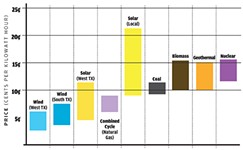Then There's This: Saving Water From Ourselves
Task force urges 'aggressive' conservation and reuse strategies
Fri., July 4, 2014
An 11-member City Council-appointed committee wrapped up its charge June 25 with the approval of a draft report containing far-reaching recommendations for ensuring Austin's water future.
Some of the members will quibble with the "far-reaching" description, on grounds that some of the recommendations don't go far enough in reining in costs and implementing even greater conservation measures. Even so, the vote approving the report in the end was unanimous.
Getting to that final step wasn't easy, and the group of committed volunteers operating under the mouthful of a name – the Austin Water Resource Planning Task Force – deserve buckets of beer or other refreshments for the hundreds of hours (in and out of meetings) they spent fashioning a thoughtful draft report on water and what to do about it.
Suspicious Minds
In a show of magnanimity, the Austin Water Utility staff also went above and beyond in helping the task force build its report, but here again, not everyone in the group put much faith in some of the information the utility provided, particularly in the area of conservation. At least three task force members – Paul Robbins (make that especially Paul Robbins), Lauren Ross, and Marisa Perales – expressed reservations about including AWU's numbers on the cost effectiveness of water conservation.
But on the whole, the task force members appeared satisfied with what they were able to produce in a very limited amount of time. Their biggest regret is that they didn't have more time and resources to delve deeper into the weeds "to develop the water demand model that we believe Austin deserves." This "water dashboard" is needed to help inform the city's decisions on demand management and supply decisions, the report states.
In the introduction to the group's recommendations, which Council members will consider after their July break, the task force wastes no time cutting to the chase: Reduce the demand for water, period – "not just during drought." With that, the report lays out more than a dozen "guiding principles" for Austin's water decisions. They arrived at these principles based on public testimony "and our own collective decades of experience in water resources management and planning."
That the committee actually took public testimony to heart is somewhat refreshing, considering city officials' history of tuning out during Citizens Communication. But given this task force's impressive roster of activist members, there wasn't a whole lot of haranguing from the public. At one of the last meetings, Save Our Springs Alliance's Bill Bunch told members he hadn't been showing up to offer public testimony because "there is such great confidence in this group."
Conservation Strategies
The task force urged the city to up its conservation game in several different common-sense areas: becoming more proactive on implementing drought response stages (Austin currently operates under Stage 2, which limits outdoor watering to once weekly); ramping up a toilet-replacement program; requiring the capture of cooling-tower condensate in new facilities; eliminating all restrictions for gray-water systems that comply with the 2012 Uniform Plumbing Code; discouraging in-ground irrigation systems in new residential and commercial developments; and enhancing efforts to fix leaky utility pipes.
In the short term, the panel recommended several immediate water-saving options, such as automating the Longhorn Dam gates, storing water in Lake Walter Long, and lowering Lake Austin to catch more rain during nonpeak recreational times of the year (the Lower Colorado River Authority backed off of a similar, albeit year-round proposal after an outcry from Lake Austin homeowners).
And speaking of LCRA, the task force suggested that the city should hit up the agency to help fund future water-supply projects, given the city's generous prepayment of $100 million in 1999 to ensure Austin's long-term water supply.
In keeping with Austin's penchant for wanting to be the No. 1 city for all things good, the task force recommended that Austin commit to becoming the most water-efficient city in Texas. This will require "unfailing public education efforts to instill a new water ethic, as well as an understanding of the real costs – and value – of water in the 21st century," the report states.
Task Force Vice Chair Tom Mason stressed the importance of the city making good on its commitment to environmental sustainability by inking that pledge into the report. "We called for the city to put a really big, deep stake in the ground saying we are going to become the most water efficient city in the state of Texas," he told fellow members.
No one doubts that the city will make such a vow. The real test comes in the follow-through.
Water Management Principles
Some of the task force's recommendations for guiding decisions about water:
• Must be affordable for every Austin resident
• Should be locally sourced to avoid cost of importing water
• Should further goal of developing new "culture of water stewardship" with broad participation and social equity
• Must be environmentally sustainable and cost-effective
• Must be consistent with Imagine Austin plan
• Must consider concerns of neighboring communities
• Should ensure water availability to irrigate locally produced food
• Decisions should not be based on utility's historical business and financing model
Got something to say on the subject? Send a letter to the editor.










